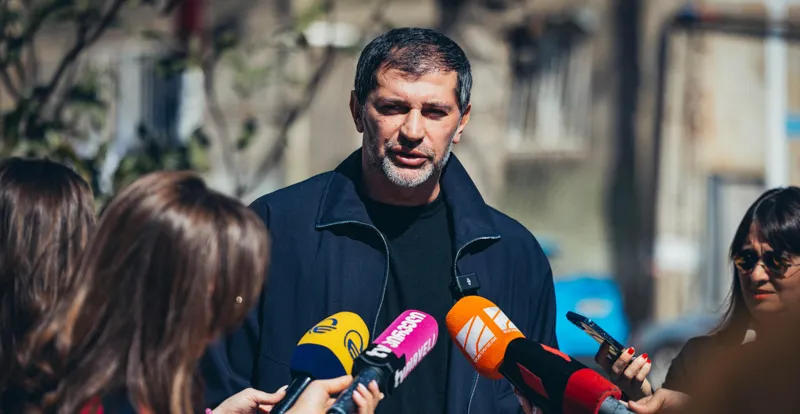**Georgian Dream Leader Slams UK Sanctions on Judges**
Kakha Kaladze, the Secretary General of Georgian Dream and Mayor of Tbilisi, has strongly condemned the UK government’s decision to sanction two high-ranking judges in Georgia. In a statement, Kaladze accused the UK of using “blackmail” tactics to take control of the country.
The UK had imposed sanctions on judges Levan Murusidze and Mikheil Chinchaladze, citing “serious suspicion” that they were involved in corruption. However, Kaladze dismissed these claims as “empty talk” with no basis in reality. He argued that the true intention behind the sanctions was to exert pressure on Georgia and use it for the UK’s own interests.
“This is a continuation of the same trend we have seen over the past months and years,” Kaladze said, emphasizing that the UK’s actions were motivated by a desire to control and manipulate countries like Georgia and Ukraine. He claimed that the sanctions were part of a broader campaign of blackmail, slander, and coercion aimed at achieving this goal.
Kaladze’s comments reflect a deep-seated skepticism towards the West, particularly the United States and the European Union, which have been critical of Georgia’s government in recent years. Georgian Dream has long maintained that Western powers are trying to undermine its authority and impose their own agenda on the country.
The sanctions on Murusidze and Chinchaladze come at a time when tensions between Georgia and its Western allies have been escalating. The UK’s move is likely to further strain relations between the two countries, with Georgian Dream viewing it as another attempt to exert pressure and undermine the government’s legitimacy.
**A Deepening Rift**
Kaladze’s reaction to the sanctions suggests that the rift between Georgia and the West is deepening. For months, there have been signs of growing tensions between Tbilisi and its Western partners, who have expressed concerns over democratic backsliding and human rights abuses in the country.
The UK’s decision to sanction two high-ranking judges can be seen as a response to these concerns, but it also risks alienating Georgia further. By framing the sanctions as an example of “blackmail” and “coercion,” Kaladze is drawing attention to what he sees as a broader pattern of Western interference in his country’s affairs.
As tensions between Georgia and its Western allies continue to rise, one thing becomes clear: the relationship between these countries has become increasingly complicated. The UK’s decision to sanction judges Murusidze and Chinchaladze may be seen as a gesture of support for democratic values, but it also carries risks for all parties involved.
Read More @ www.interpressnews.ge













